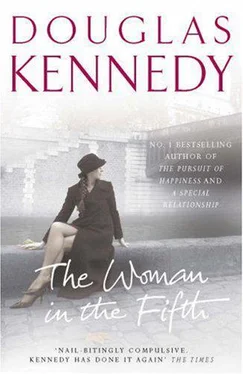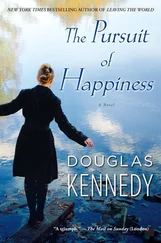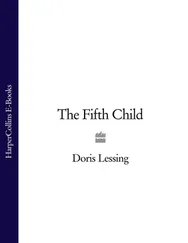Then the teaching began. I liked my students. They seemed to like me — and I quickly remembered what a pleasure it could be to stand up at a lectern and spout on about movies. The first term passed by with great speed. I got a phone installed in the apartment. I called Susan every day. Megan was back at school within four weeks of her accident. But she was still refusing to speak to her father. ‘She doesn’t talk much to me either,’ Susan said. ‘She really mopes a lot. The doctors say it’s a natural side effect after coming out of a coma. She’s depressed. But at least she’s talking to a psychotherapist at school. So … be patient. She will come around.’
Everything began to fall into place. My contract at the American Institute was extended for two years. I met a guy at a reception at the Institute who edited a weekly magazine for expatriates and was looking for a film critic. The pay wasn’t much — one-fifty a column — but it got me writing about movies again and brought in a little more money. I was able to buy a few better clothes. I invested in a television and a DVD. I purchased a new laptop. I bought a cellphone. I gave my lectures, I wrote my column, I worked out in the Institute’s gym, I continued to haunt the Cinematheque and the little movie houses that crammed my quartier . I had my daily call to Susan about Megan. We were polite with each other on the phone — the edgy anger now abating into a respectful distance. We were no longer enemies; rather, weary combatants who had decided it was now easier to be civil with each other and only had one agreed subject of conversation: their daughter.
Time continued to accelerate. I taught all summer. I loved the vacant streets of Paris in August, and managed a two-and-a-half-day holiday on the beach in Collioure. Outside of my work I found something to ‘do’ every day — a movie, an exhibition, a concert, books to read, magazines to peruse — anything to fill the hours.
One afternoon, I spent the better part of a half-hour in the permanent collection of the Pompidou, staring at one of Yves Klein’s blue monochrome paintings. I’d seen this one in art books before. But approaching it — in the flesh, so to speak — was revelatory. At first sight, it was just a canvas painted a deep blue — its tint somewhat akin to a late-afternoon sky on a clear winter’s day. Darkness was visible within its confines. But the longer I stared at it, the more I began to see the subtle gradients in Klein’s shading of the canvas: a complex array of textures and tonal variations, all lurking behind what, at first, simply seemed like a large blue square. But it wasn’t just its intricate blueness that held my attention. After a few minutes of direct eye contact, the painting proved hypnotic. The textures disappeared and I found myself staring into a place of spatial emptiness: a void without limits, from which there was no return. Until someone bumped into me, jolting me back to terra firma. I felt a little befuddled. But much later that night, as I climbed into bed and turned off the light, Klein’s infinite blueness came back to me. And I couldn’t help but think, That’s the void I live in now.
The floppy disk that Margit had returned to me was put away in a drawer in my new apartment. One evening, toward the beginning of September, I pulled it out and loaded it into my laptop. I spent a long Saturday reading all six hundred pages of my still unfinished novel. When I reached the end, I removed the disk from the computer. I put it back in my desk drawer and resolved never to look at it again.
You’re right, you’re right, I heard myself telling her. Overcooked, self-important posturings with no real storyline, no motor to keep you turning the pages .
I knew she could hear me say that. Just as I knew she was always there, always watching.
‘So you finally gave up on the novel,’ Margit said when I saw her the following day.
‘Why ask a question to which you already know the answer?’
‘Just making conversation.’
‘No, you’re just doing what you always do: reminding me of your omnipresence.’
‘I would have thought that, by now, you would have adjusted to—’
‘I’ll never adjust. Never. How can I, knowing you’re hovering over me, making certain—?’
‘—that no harm comes to you—’
‘But that I also stay within the rules.’
‘There’s only one rule, Harry. Here twice a week from five until eight.’
‘And in the future, if I want to visit my daughter for four days?’
‘Make it three days. Or — when she’s ready — fly her over here.’
‘Can’t we negotiate?’
‘No. This is the set-up. It has its minor limitations. It has its liberties. As I said before, you are free to do what you like outside our time together.’
‘Even though you’re watching over me at all times?’
‘And what is wrong with that?’
I said nothing. But a few nights later, I started writing this book. I wanted to get it all down on paper; a record of what happened — just in case something did happen to me — and to try and convince myself that I was not living in a state of permanent delusion. But why should you accept this story as given? It’s just a story — my story. And like all stories, it isn’t, in the pure sense of the word, true. It’s just my version of the truth. Which means it is — and isn’t — true at all.
How do you step out of one world and into another? I’ve no damn idea — but I keep doing it twice a week.
‘What happens to you when you grow older?’ I asked her recently. ‘Do you die again?’
‘I’ve no idea.’
‘And when I die, do I join you in spectral perpetuity?’
‘I have no idea … but I like the turn of phrase. Are you putting it in your book?’
I met her gaze.
‘Yes,’ I said.
‘It’s interesting reading,’ she said. ‘Not that anyone will believe you.’
‘I’m not writing it to be read.’
‘Rubbish. All writers write to be read … to have their story “out there”. But trust me: this will never get published.’
‘Is that a threat?’
‘Just a statement of fact … as I see it, of course.’
‘So you’re going to make certain it never gets published?’
‘Did I say that?’
‘You implied that.’
‘Hardly. Your life outside our hours together …’
… is my own?
But how can it be when she’s constantly there ? How can you make a decision when you know there is a third party present, guarding you from the wrong choice? Recently I dashed out into the rue des Ecoles, trying to hail a taxi, and unaware that I had stepped right into the path of a motorcyclist. Though less than two seconds away from hitting me, the cyclist flipped over, as if shoved out of my path by some hidden force. He got up, unhurt. But when a cop showed up moments later and asked him if he had swerved to avoid me, he said he was certain someone pushed him.
‘Did you see anyone push him?’ the cop asked me. I shook my head.
The next afternoon, chez Margit, I said, ‘Thank you for saving me yesterday.’
‘Didn’t your mother ever tell you to look both ways before stepping out into the street?’
‘If he had hit me, it might have taught me a lesson.’
‘If he had hit you, you would have been dead. The fact that he didn’t also taught you a lesson.’
‘How wonderful to have a Fairy Godmother,’ I said.
‘How wonderful to be appreciated. Still writing the book?’
‘Aren’t you reading it as I write it?’
‘You have no proof. But I do worry about the way you work so late into the night, and are then up a few hours later.’
Читать дальше












